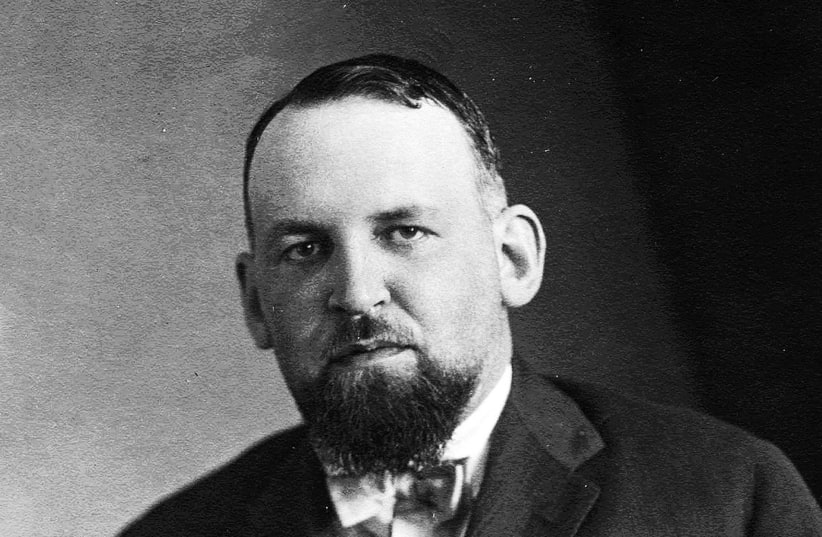In the current debate between government circles in Poland and Holocaust historians on Jewish-Polish relations during the German occupation, there is of course no denial by all parties on the presence of antisemitism among wide strata of the non-Jewish population. This is coupled with acts of betrayal and physical harm to fleeing Jews by elements of the Polish underground as well as farmers in some villages and townspeople.
At the same time, not to overlook are the many acts of courage and self-sacrifice by persons from all walks of life, in risking their personal safety to save Jews from both the Germans and local collaborators. In my 24-year work at Yad Vashem, as head of the Righteous Among the Nations Department, I was instrumental in having thousands of these brave people bestowed the Righteous title. It is well to remember that Poland was singled by the Germans as a country where the death penalty was exacted on anyone affording aid to Jews, and not a few, indeed, sadly paid with their lives for their humanitarian behavior.
What is not well known is the role of some Polish diplomats, representing the Polish government-in-exile, in London, in trying to stem the German genocide of Jews, by applying some unorthodox diplomatic means to save them.
One such story is that of a group of Polish diplomats, stationed in Bern, Switzerland, who devised a scheme to rescue Polish Jewish citizens from deportation, who lived in various German-dominated countries, by converting them into citizens of certain Latin American countries, especially Paraguay. This operation was initiated by the head of the Polish legation, Aleksander Lados, his principal aide, Stefan Ryniewicz, and the consular secretary, Konstanty Rokicki, as well as Juliusz Kühl, the Polish-Jewish staff member in the legation.
This highly irregular diplomatic undertaking was made possible with the assistance of the Paraguayan honorary consul in Bern, who provided his country’s citizenship papers, in return for payment, but without the knowledge of his own government. The logic behind this scheme was for the persons holding these false, but ostensible legitimate, documents to be exchanged by the German government for German nationals living in Latin American countries – an effort that the Nazi regime was much interested.
What is, however, amazing in this story is the close collaboration of the Polish diplomats with several major Jewish rescue activists in Switzerland in this vast rescue endeavor. They include Abraham Silberschein, of the World Jewish Congress, Rabbi Chaim Yisroel Eiss, of Agudat Israel, and Yitzhak and Recha Sternbuch, of the New York-based Vaad Hatzalah – all of whom submitted testimonies on the role of the Polish diplomats in this rescue operation. It is the only story so far recorded of such a close and even intimate non-Jewish/Jewish teamwork effort to help as many Jews as possible, and the numbers hoping to be aided runs into several thousands.
WHEN THE Swiss authorities learned of this vast illegal operation, they considered punitive measures against the Polish legation personnel if they would not immediately stop and desist from this operation. It is not known how many Jewish lives were actually saved, although the number runs into the hundreds out of the several thousand false citizenship papers sent to them, or via couriers. In some cases, non-Polish Jewish citizens were awarded Polish passports to allow them to flee Europe in time, such as Dr. Joseph Burg, future minister in the Israeli government, and Pierre Mendès-France, future Prime Minister of France – both trapped in Switzerland when the war broke out, and wishing to get out; Burg to Eretz Israel, and Mendès-France to London, to join De Gaulle’s government.
Yad Vashem, through its Commission for the Righteous, has confirmed this rescue story, and has awarded the Righteous title to Konstanty Rokicki, the third person in the legation’s chain of command, who was involved in this rescue operation, by principally carrying out the instructions of his two superiors, Lados and Ryniewicz.
What, however, remains inexplicable is the decision to withhold the Righteous title to Rokicki’s two superiors, who planned, initiated and carried out the rescue operation over a lengthy period, as confirmed by the vast archival information submitted to Yad Vashem. No reasons were given why these two principal rescue activists were left out. Repeated requests over the past year for a clarification of this oversight have so far been met with a total silence. This is, therefore, an appeal to Yad Vashem to rectify the error and also bestow the Righteous title to the principal actors in this giant rescue operation – to the late Aleksander Lados and Stefan Ryniewicz. Should there be hidden reasons why this cannot be done in spite of the vast evidence in their favor, does not Yad Vashem, a public institution created by law, owe an obligation to at least state the reasons for this denial?
The writer is formerly head of the Righteous Among the Nations Department at Yad Vashem, Jerusalem, and currently teaches the Holocaust at Yeshiva University-Stern College and Touro College, New York.
